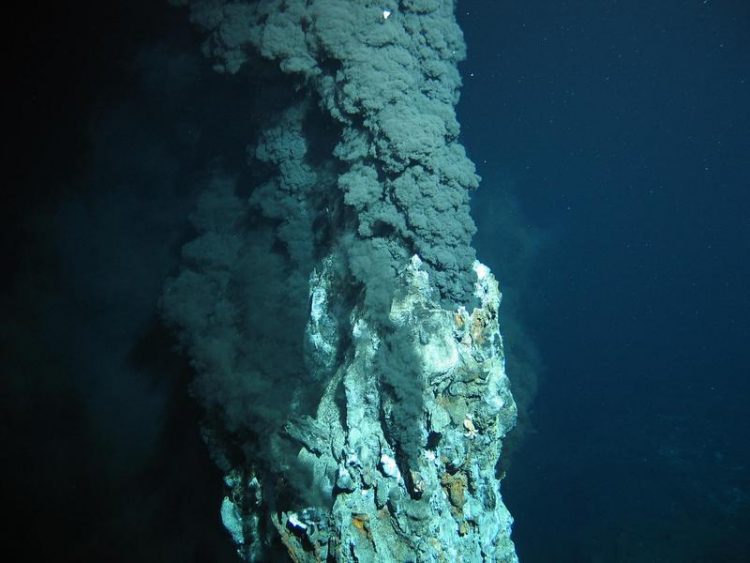Exploring the deep sea – first-time LIBS measurement at 600 bar

The measurement of elements with LIBS shall help to locate natural resources in a non-destructive way in the future. GEOMAR (CC BY 4.0)
Locating mineral resources on the sea floor has so far been rather expensive. In order to reduce the costs, the LZH is working with eight other European partners to develop a laser-based, autonomous measuring system for underwater use by 2020. The system is supposed to detect samples, such as manganese nodules, and analyze their material composition directly on the deep sea ground.
Pressure chamber allows simulation of the deep sea
For this purpose, the scientists at the LZH are developing a system for laser-induced breakdown spectroscopy (LIBS) within the scope of the ROBUST project. In order to test the LIBS system developed by LZH under deep-sea conditions, a special pressure chamber was designed and manufactured.
With the pressure chamber, a water depth of 6,500 meters can be simulated with a pressure of up to 650 bar. The chamber is suitable for both freshwater and saltwater and can thus simulate various application scenarios. Through a viewing window, the laser radiation enters the pressure chamber with the test sample to be analyzed.
LIBS is a non-contact and virtually non-destructive method of analyzing chemical elements. Solid materials, liquids and gases can be examined. The method is based on the generation and analysis of laser-induced plasma.
Here, a high-energy laser beam is focused on the sample. The energy of the laser beam in the focal point is so high that plasma is created. The plasma in turn emits an element-specific radiation, which is measured with a spectroscope. The emission lines in the spectrum can be assigned to the chemical elements of the sample.
About ROBUST
The project “Robotic Subsea Exploration Technologies – ROBUST” (grant number: 690416) is funded by the European Union within the framework of the program “Horizon 2020”.
Media Contact
More Information:
http://www.lzh.de/All latest news from the category: Materials Sciences
Materials management deals with the research, development, manufacturing and processing of raw and industrial materials. Key aspects here are biological and medical issues, which play an increasingly important role in this field.
innovations-report offers in-depth articles related to the development and application of materials and the structure and properties of new materials.
Newest articles

A universal framework for spatial biology
SpatialData is a freely accessible tool to unify and integrate data from different omics technologies accounting for spatial information, which can provide holistic insights into health and disease. Biological processes…

How complex biological processes arise
A $20 million grant from the U.S. National Science Foundation (NSF) will support the establishment and operation of the National Synthesis Center for Emergence in the Molecular and Cellular Sciences (NCEMS) at…

Airborne single-photon lidar system achieves high-resolution 3D imaging
Compact, low-power system opens doors for photon-efficient drone and satellite-based environmental monitoring and mapping. Researchers have developed a compact and lightweight single-photon airborne lidar system that can acquire high-resolution 3D…





















